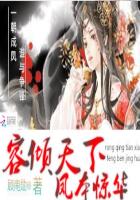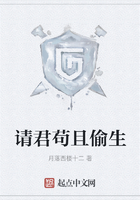George Willard was older than Seth Richmond, but in the rather odd friendship between the two, it was he who was forever courting and the younger boy who was being courted. The paper on which George worked had one policy. It strove to mention by name in each issue, as many as possible of the inhabitants of the village. Like an excited dog, George Willard ran here and there, noting on his pad of paper who had gone on business to the county seat or had returned from a visit to a neigh- boring village. All day he wrote little facts upon the pad. "A. P. Wringlet had received a shipment of straw hats. Ed Byerbaum and Tom Marshall werein Cleveland Friday. Uncle Tom Sinnings is building a new barn on his place on the Valley Road."The idea that George Willard would some day be- come a writer had given him a place of distinction in Winesburg, and to Seth Richmond he talked con- tinually of the matter, "It's the easiest of all lives to live," he declared, becoming excited and boastful. "Here and there you go and there is no one to boss you. Though you are in India or in the South Seas in a boat, you have but to write and there you are. Wait till I get my name up and then see what fun I shall have."In George Willard's room, which had a window looking down into an alleyway and one that looked across railroad tracks to Biff Carter's Lunch Room facing the railroad station, Seth Richmond sat in a chair and looked at the floor. George Willard, who had been sitting for an hour idly playing with a lead pencil, greeted him effusively. "I've been trying to write a love story," he explained, laughing ner- vously. Lighting a pipe he began walking up and down the room. "I know what I'm going to do. I'm going to fall in love. I've been sitting here and think- ing it over and I'm going to do it."As though embarrassed by his declaration, George went to a window and turning his back to his friend leaned out. "I know who I'm going to fall in love with," he said sharply. "It's Helen White. She is the only girl in town with any 'get-up' to her."Struck with a new idea, young Willard turned and walked toward his visitor. "Look here," he said. "You know Helen White better than I do. I want you to tell her what I said. You just get to talking to her and say that I'm in love with her. See what she says to that. See how she takes it, and then you come and tell me."Seth Richmond arose and went toward the door. The words of his comrade irritated him unbearably. "Well, good-bye," he said briefly.
George was amazed. Running forward he stood in the darkness trying to look into Seth's face. "What's the matter? What are you going to do? You stay here and let's talk," he urged.
A wave of resentment directed against his friend, the men of the town who were, he thought, perpet- ually talking of nothing, and most of all,against his own habit of silence, made Seth half desperate. "Aw, speak to her yourself," he burst forth and then, going quickly through the door, slammed it sharply in his friend's face. "I'm going to find Helen White and talk to her, but not about him," he muttered.
Seth went down the stairway and out at the front door of the hotel muttering with wrath. Crossing a little dusty street and climbing a low iron railing, he went to sit upon the grass in the station yard. George Willard he thought a profound fool, and he wished that he had said so more vigorously. Al- though his acquaintanceship with Helen White, the banker's daughter, was outwardly but casual, she was often the subject of his thoughts and he felt that she was something private and personal to himself. "The busy fool with his love stories," he muttered, staring back over his shoulder at George Willard's room, "why does he never tire of his eternal talking."It was berry harvest time in Winesburg and upon the station platform men and boys loaded the boxes of red, fragrant berries into two express cars that stood upon the siding. A June moon was in the sky, although in the west a storm threatened, and no street lamps were lighted. In the dim light the fig- ures of the men standing upon the express truck and pitching the boxes in at the doors of the cars were but dimly discernible. Upon the iron railing that protected the station lawn sat other men. Pipes were lighted. Village jokes went back and forth. Away in the distance a train whistled and the men loading the boxes into the cars worked with re- newed activity.
Seth arose from his place on the grass and went silently past the men perched upon the railing and into Main Street. He had come to a resolution. "I'll get out of here," he told himself. "What good am I here? I'm going to some city and go to work. I'll tell mother about it tomorrow."Seth Richmond went slowly along Main Street, past Wacker's Cigar Store and the Town Hall, and into Buckeye Street. He was depressed by the thought that he was not a part of the life in his own town, but the depression did not cut deeply as he did not think of himself as at fault. In the heavy shadows of a big tree before Doctor Welling's house, he stopped and stood watching half-witted Turk Smollet, who was pushing awheelbarrow in the road. The old man with his absurdly boyish mind had a dozen long boards on the wheelbarrow, and, as he hurried along the road, balanced the load with extreme nicety. "Easy there, Turk! Steady now, old boy!" the old man shouted to himself, and laughed so that the load of boards rocked dangerously.














